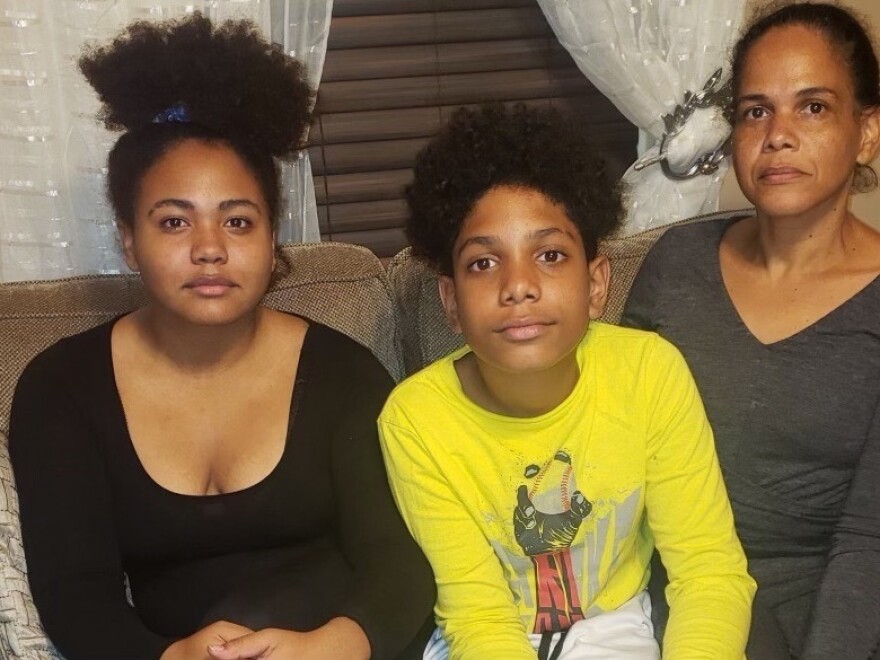Updated at 8:27 p.m. ET
Omni Hotels & Resorts, the international luxury hotel chain owned by billionaire Robert B. Rowling, is being accused of misusing millions of dollars in federal pandemic relief funds meant to keep workers on payroll.
Unite Here, a service workers union with more than 300,000 members in North America, said several Omni hotels where it represents workers took Paycheck Protection Program loans but never paid hundreds of workers.
Unite Here said 32 Omni hotels received about $76 million in loans from the program, known as PPP. About $23 million of that went to seven hotels, in cities including Chicago, Boston, Washington, D.C., and San Francisco, where the union represents more than 1,000 housekeepers, servers and other service workers.
In its application to the Small Business Administration, the Omni Providence Hotel in Rhode Island asked for a $2.6 million PPP loan, promising to retain 246 jobs.
Quilcia Moronta, a health club attendant, was laid off after working at the hotel for 21 years. She applied for unemployment benefits and food stamps and was hopeful when the hotel's loan was approved on April 13.
"As I was struggling to provide for my family, I learned that the Omni had received some PPP money," said Moronta, a single mother with two children. "I said, 'Great, at least they're gonna help us get by when it comes to basic needs.' "
Eight months later, unemployment benefits for Moronta and other workers have expired, and health coverage is long gone. And they are still waiting for PPP benefits.
"Right now, here we are in December, and we haven't heard anything about Omni using that money to help their employees," she said.
"Here in Boston, I've spoken to hundreds of workers who work at the Omni Parker House, and I know none of them have received a single dime of this money," said Carlos Aramayo, Unite Here's executive vice president. "Looking at this winter, a lot of them could really use it."
Zebedee Williams was laid off in March from his job as an overnight banquet houseman at the Omni William Penn Hotel in Pittsburgh. He said that since unemployment benefits and weekly supplemental assistance from the federal government ran out, he has struggled to feed his household, which includes a partner on disability and three daughters. To stretch the budget, he said, he has skipped meals.
"It's not right for the kids not to eat," Williams said. "I would do it 10 times again if the situation happened. I would make sure my children eat. I would make do."
In a written statement, a spokesperson for the Dallas-based chain said workers at the hotels had not been retained because the facilities were either closed or operating at greatly reduced capacity.
PPP was part of the CARES Act, the huge pandemic-relief package President Trump signed in March. Some 5.2 million businesses have secured $523 billion in PPP loans. Though the Small Business Administration program was meant to help small businesses keep workers paid — as an alternative to unemployment — it has been widely criticized for favoring large businesses and been stung with allegations of fraud.
PPP rules do permit a business to use funds for payroll even if it is closed. But the Omni elected not to do that. Instead, the chain said in its statement, "any amount of the PPP loans that are not forgiven will be returned or repaid with interest per program terms."

Critics say whether the hotels pay back the loans is beside the point. They note, for instance, that the interest rate on PPP loans is just 1% — well below market rate.
"It's disgusting if companies want to use this as a way to get a low-interest loan from the federal government," says Unite Here's Aramayo. "It's really not fair for a company to take money that was intended to help out their own workforce and use it for some other purpose."
Omni's use of the funds is "obviously really contravening the spirit of what this [program] was about," said Harry J. Van Buren, a professor of business ethics at the University of St. Thomas in St. Paul, Minn. "Even if they do repay the loan, the fact that they got awfully close to free money for some period of time is really an advantage to them as well."
"I do think about other businesses that maybe didn't get money because Omni did, either truly small businesses that were struggling or another company that might have used it to actually pay their workers," said Lisa Gilbert, executive vice president of the consumer advocacy group Public Citizen. "It doesn't seem like a great investment of taxpayer dollars, even if they pay back the money at the end of the day."
On Dec. 8, Aramayo wrote to the Small Business Administration and the Treasury Department, urging them to scrutinize PPP loans to Omni hotels, "especially if [the borrowers] apply for forgiveness." It was just weeks before Trump signed into law a new pandemic-relief package with its own version of the Paycheck Protection Program — one with new rules to help address some of the problems critics found with the first iteration.
Copyright 2020 90.5 WESA

